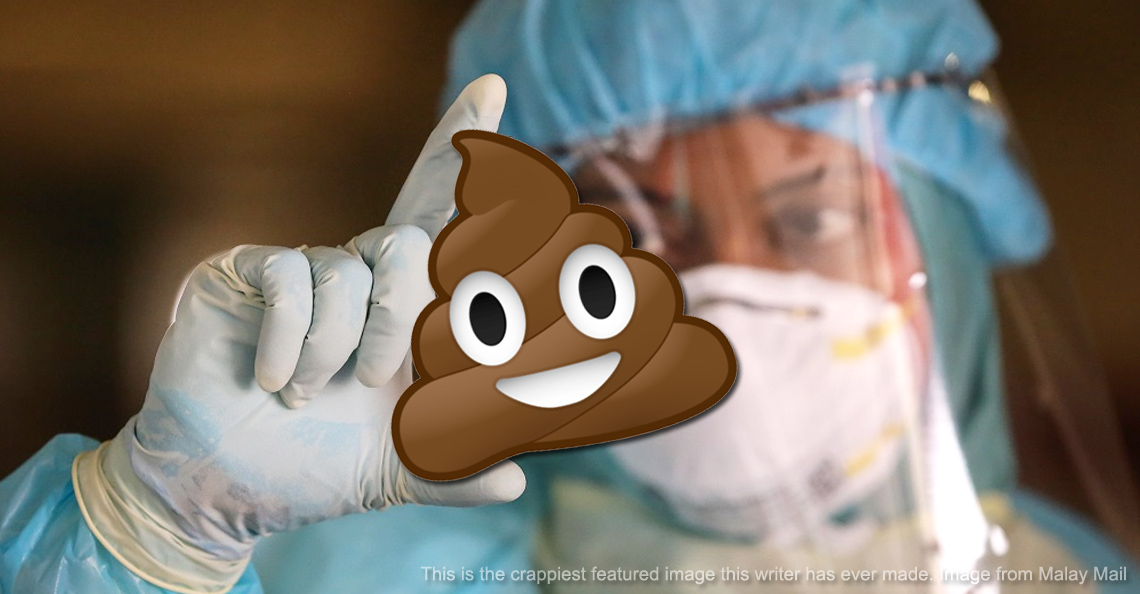“Selling my car wasn’t enough”. Msia’s top event organiser shares his painful 2020 journey

- 8.1KShares
- Facebook7.9K
- Twitter29
- LinkedIn23
- Email24
- WhatsApp176
This is the man who brought Psy to Malaysia.
He’s also the same guy who brought DeadMau5, The Prodigy, Tiesto, Rita Ora, and numerous other top acts with the Future Music Festival Asia; and numerous other big acts to the region’s biggest music festivals and parties.
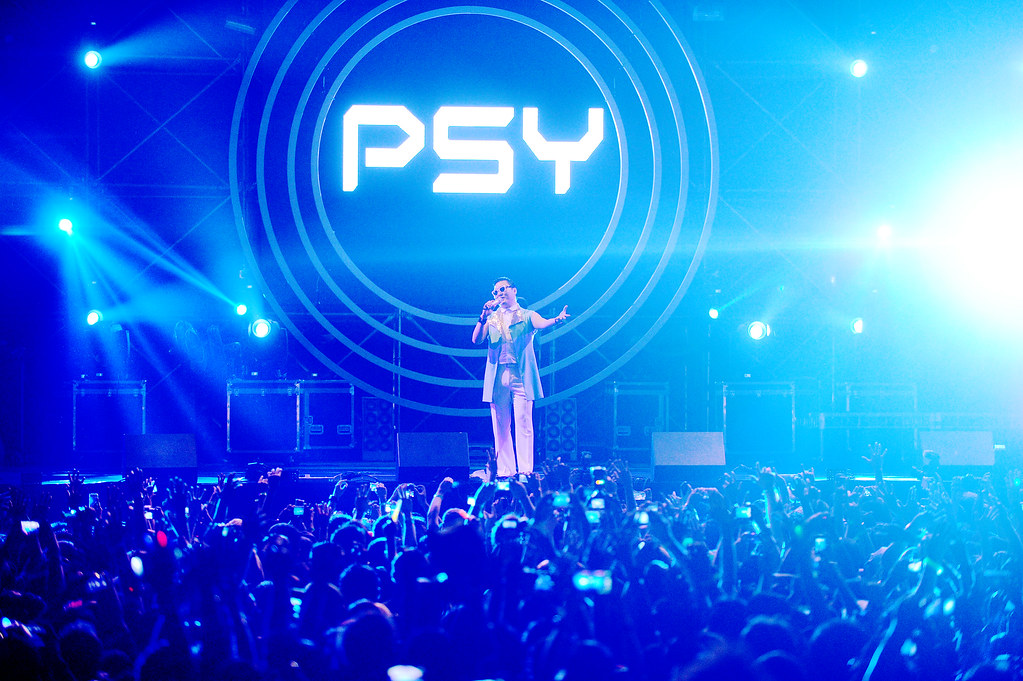
As 2020 started, Iqbal Ameer was doing well. His multi-million dollar event company, Livescape Group, had numerous event contracts. On top of that, he was running the rock festival Rockaway, and the cruise ship party, It’s The Ship which started off in Singapore in 2015, and his team was in the midst of overcoming the obstacles to expand their franchise of music festival cruise experiences in Korea and China later in 2020.
Over the years as CEO, Iqbal has had to deal with massive crowds, unpredictable weather, event cancellations, and of course, the occasional odd request of their superstar lineups. But the biggest obstacle was yet to come…
How does a company that organises some of the region’s biggest gatherings survive 2 years of social distancing?
The last two years have seen unprecedented economic challenges for our country. However, the Ministry of Finance Malaysia has helped numerous Malaysian businesses and individuals to get back on their feet via its four-phase National Recovery Plan (NRP) together with its PEMERKASA Plus and PEMULIH packages.
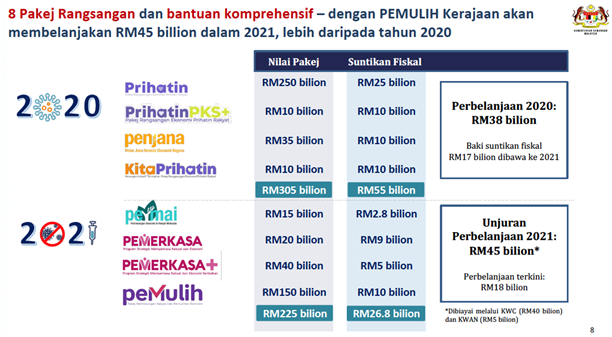
Some of these initiatives include:-
- Wage subsidy programme and cash assistance
- Loan moratoriums
- EPF emergency withdrawals via i-Citra
- SME digitalisation grants and more
However, the events industry was probably one of the most challenging environments to survive in. Today, in collaboration with the Ministry of Finance Malaysia, we sat down with Iqbal Ameer, to bring you the remarkable turnaround story of Livescape Asia.
March 2020 – This is not just a regular flu
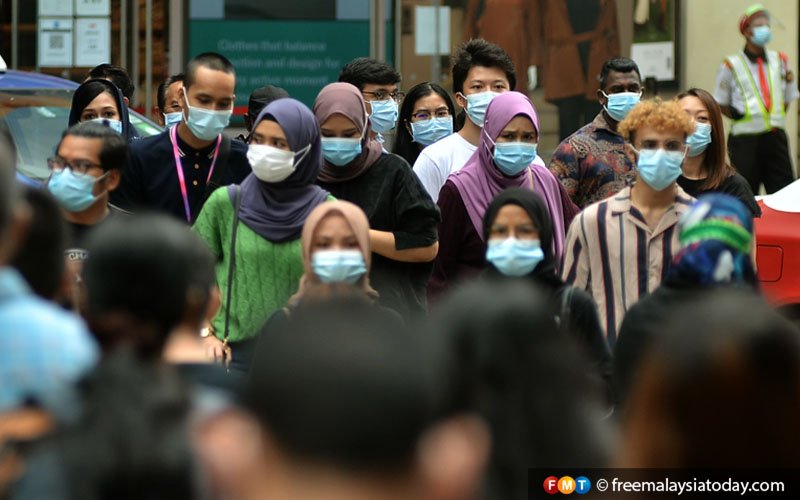
“No one understood the magnitude of what COVID would be. When your body is in survival, you’re kinda in denial. ‘It’s just a flu, it won’t last long.‘” – Iqbal
The first COVID positive cases were detected in Malaysia in January when three infected Chinese nationals crossed into Malaysia from Singapore. The first Malaysian case was reported on Feb 3rd. By mid-March, the first Movement Control Order (MCO) was imposed, and Iqbal sensed that his business might be in trouble. In those few days before the lockdown, Iqbal gathered his team and showed them a Vox video of how much more dangerous COVID-19 was, compared to a normal flu. “I told them – the Livescape you know now is going to change forever, if there is even a Livescape after this.”, he said.
He showed a strong face, telling everyone to go home, and setup their home workstations in preparation for the lockdown. He bought groceries for his staff, unsure if supermarkets would be allowed to open. And then he met with his finance team, who explained the harsh reality of what was about to hit them. Was there any chance of having events anytime for the next few years?
At the time, Livescape Group had 70 employees across Malaysia, Singapore and Indonesia. Each month, roughly RM300,000 was needed to pay salaries, rent and utilities (this monthly cost total is known to businesses as their ‘burn rate‘). Iqbal immediately instructed his finance team to push to collect outstanding payments, but the minute the country went into lockdown, many of those companies delayed their payments to manage their own cashflows in very uncertain times. Once the finance team did their calculations, they realised how fragile their business had become – they would have just enough for 3 months before Livescape would run out of money.
Iqbal started asking for advice. His father, a businessman himself, told him that events companies would have no work for at least a year, maybe more, so why not just hibernate the company?
“He told me to just tell everyone “Hey, we had a great run, and I’ll see you in 3 years!“. Livescape had a good rep, and you did not want to brand-wise go down a slow descent. I could put the money owed to Livescape into some fixed deposits, and when things get better, open back up. You’d be surprised at the amount of people that told me the same thing.” – Iqbal
And Option 2? Well, that was what Iqbal was leaning towards. To fight. To do absolutely everything they could with the resources they had, and see if they could figure out ways of making the company work.
“As a Group CEO of a company of 70, we know every single person in the company. And we know them well. And they’re family. And you never turn your back on family.” – Iqbal
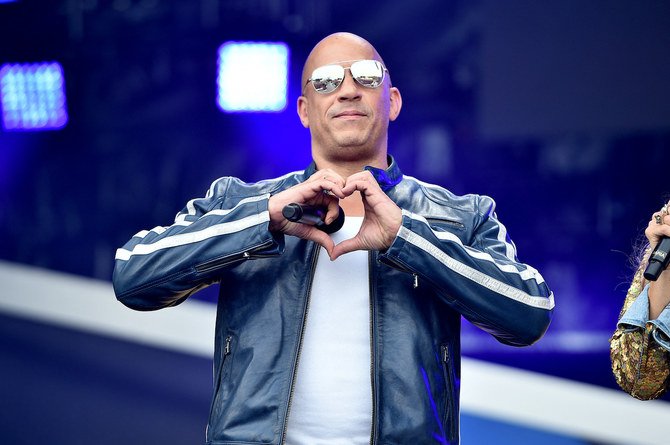
The first thing they did was to get some cash to extend their runway. First thing to go? Painfully, his dream car – a Land Rover he bought 4 years ago when It’s The Ship became cash positive. It was also his only car.

What else? As an events company, they had a warehouse of equipment like barricades, portable toilets, surveillance cameras and AV gadgets. The only problem? Events were dead. So there was no one to sell their events-specific equipment to.
“So we literally scrapped a lot of it for parts. We managed to sell the barricades to property companies, the bins to retail, and the CCTV towers were broken down into components and sold to a camera rental company. It was painful.” – Iqbal
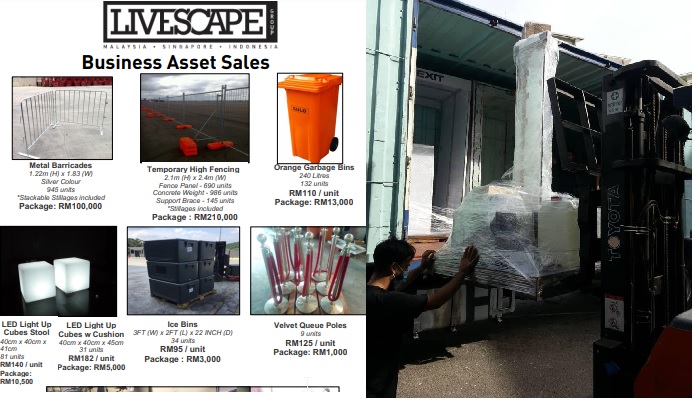
He also assured the staff that everyone would get a salary for those 3 months, but he did cut them to ensure he could make payments for as long as he could.
- 30% cut on those below RM8000,
- 50% cut for those between RM8,000-12,000,
- 70% for those above RM12,000
- and directors would not draw any salary at all.
It was also around this time that the government launched its first COVID aid package in the form of the wage subsidy programme, which helped the company maintain salaries for those under RM4,000. With those subsidies, cuts and asset sales, they solidly bought 3 months to turn the company around. But… what were they gonna do?
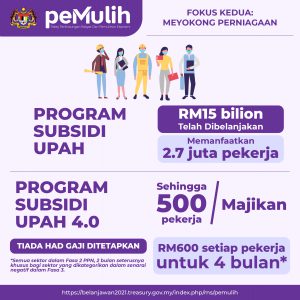
“We started by dividing everyone into circles. Each circle would have reps from marketing, finance, events, HR, and we completely wiped out their roles and they basically look at themselves as a startup. We gave each of them a brand. E.g. “Rockaway, It’s The Ship, Electric Run” and everyone worked from home trying to figure out what to do.” – Iqbal
They came up with a bunch of activation ideas for clients for free, hoping the clients would use Livescape to execute those plans. They also looked at the pandemic situation and tried to find opportunities there. They ventured into social distancing stickers, sanitization chambers, and an interesting concept called Instadare, which got friends to put in money and dare each other to do things like shaving their heads.
But sadly, 3 months later when the MCO had ended, reality set in.
May 2020 – Crying in front of my entire company
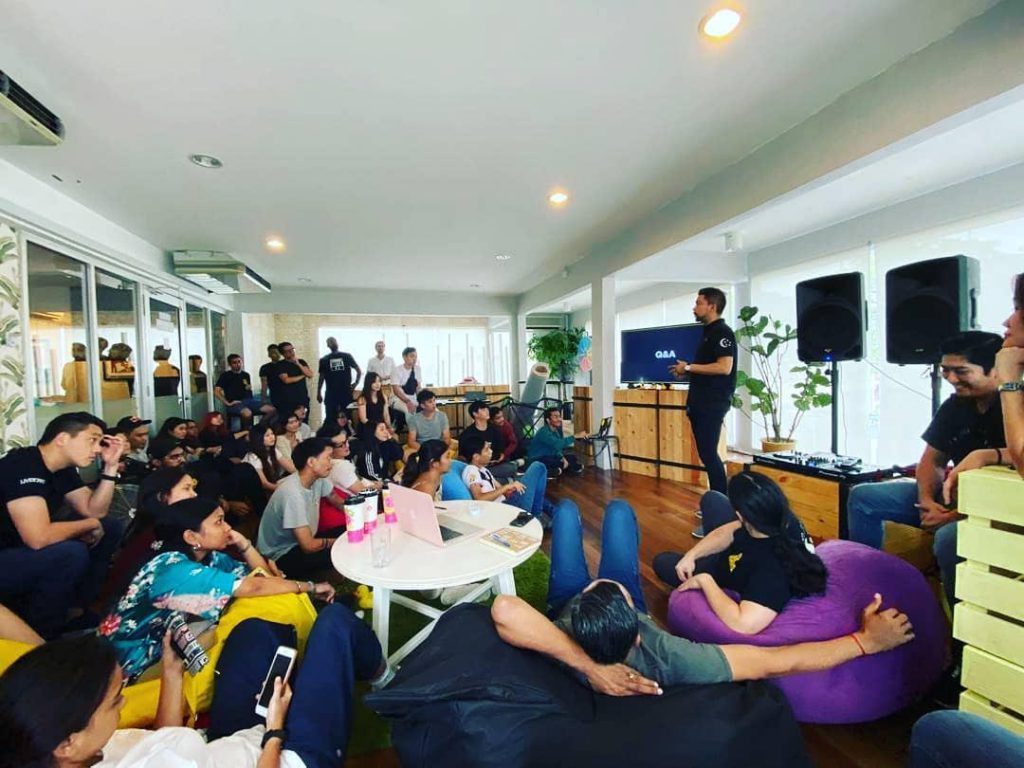
Aside from a few campaigns that came in, the majority of their endeavours had failed. Halfway through, they started seeing the signs. He told his heads of departments to step it up. They worked till 3am every night.
“We were always busy cause we were always gonna try something. Along the way, we realised we weren’t gonna make it. This is when some of the seniors volunteered to resign. They knew the kind of money they were making was more useful to the rest of the team, and that they might have a better chance of finding jobs elsewhere than the juniors.” – Iqbal
In May 2020, the government allowed offices to reopen. Iqbal called a town hall with the entire staff in Malaysia. At that time, they had already lost about 10-12 people. He told them they had not hit their targets, and thus… they’d have to cut people’s salaries by 50-70% across the board.
“At that point, I broke down. In front of everyone. It was bad because at that point in time, they trusted you to get them out of it, and you’re on the front line, coming out with ideas, and a lot of them failed, but… you didn’t get them out of it. And you feel like a complete failure. As a CEO you have to inspire everyone, but who inspires you? The other CEOs around you are asking you to close your doors.” – Iqbal
That was when his staff started showing cracks. He was told “I don’t know how long I can tahan”, or “I wanted to retire here, but I need to jaga my family”.
“That didn’t help, cause we lost a lot of our critical thinkers when we’re trying to reinvent ourselves. You feel like you wanted that too, so you have a sense of betrayal, but that eventually became… it is what it is, but you know in your heart you did the best you can.” – Iqbal
In addition, due to the lack of any events whatsoever, he had no choice but to let go the majority of the events department. He offered assistance where he could, but nothing could hide the fact that the events business was going down.

June 2020 – The end of Livescape as an events company and the first spark of something new
During those tough months, they had tried to monetize their current events like Rockaway, by selling T-shirts or merchandise. But very quickly they realised that it wasn’t going to be enough.
“We instead saw an opportunity in looking at our database. Let’s look at the data, find issues these people are having, and look for solutions to those issues.” – Iqbal
For instance, one of their events was called ElectricRun, a charity run at night with a funky neon aesthetic. They sent questionnaires to their database of participants, and noticed many were finding it difficult to keep fit with all the gyms closed. With that, comes an opportunity.
“On the flipside, we noticed there were a lot of fitness influencers who were staying relevant through their social media, but they weren’t making money either. Their communities were engaged to watch them, but they weren’t monetizing.” – Iqbal
So they went to a company called Madison, who developed their event apps, and pitched them a new concept called MoveAsOne, where enthusiasts could tip to support their favourite fitness influencers. The owner, the ex-Chief Technology Officer of Gojek happened to be a fitness buff, so they embarked on joint venture with Livescape to create the app.
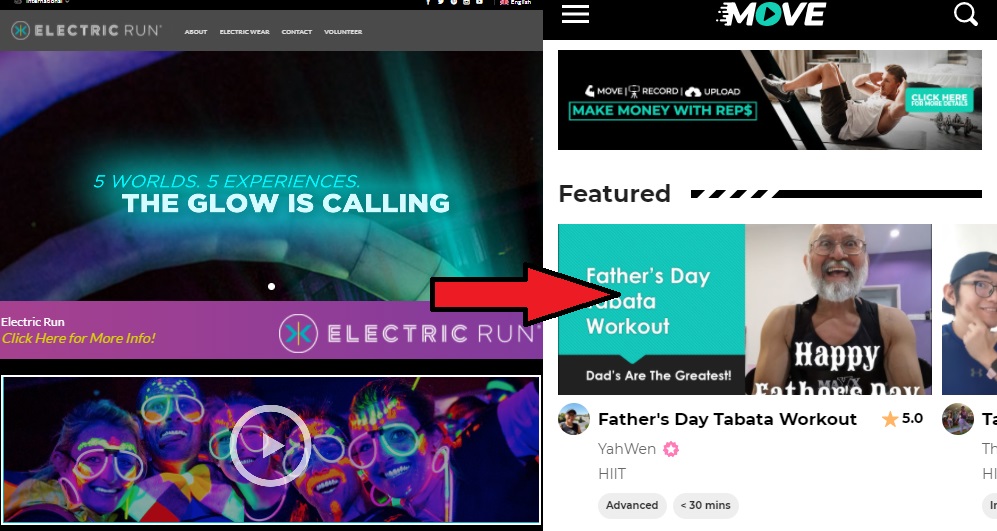
“That was the beginning of the fightback, because someone trusted our idea. We then took it and then we went to an investor in the fitness space whose gym had to close due to MCO. He saw something there, and gave us a seed fund to develop it and kick it off. We went to JD Sports, Rexona, and they liked it and partnered with us.” – Iqbal
From the ashes of their rock festival Rockaway, came a huge community that supported the creative industry. Livescape started asking questions, and realised there was a very big unaddressed market in the creative freelance gig economy. Many of these freelancers had no CVs, and with the lockdowns, it was getting harder to network. So LiveScape created MuseRoom, a freelance directory that helped with job listings and collecting payments. Each time they withdrew funds, RM10 would go back to Livescape.
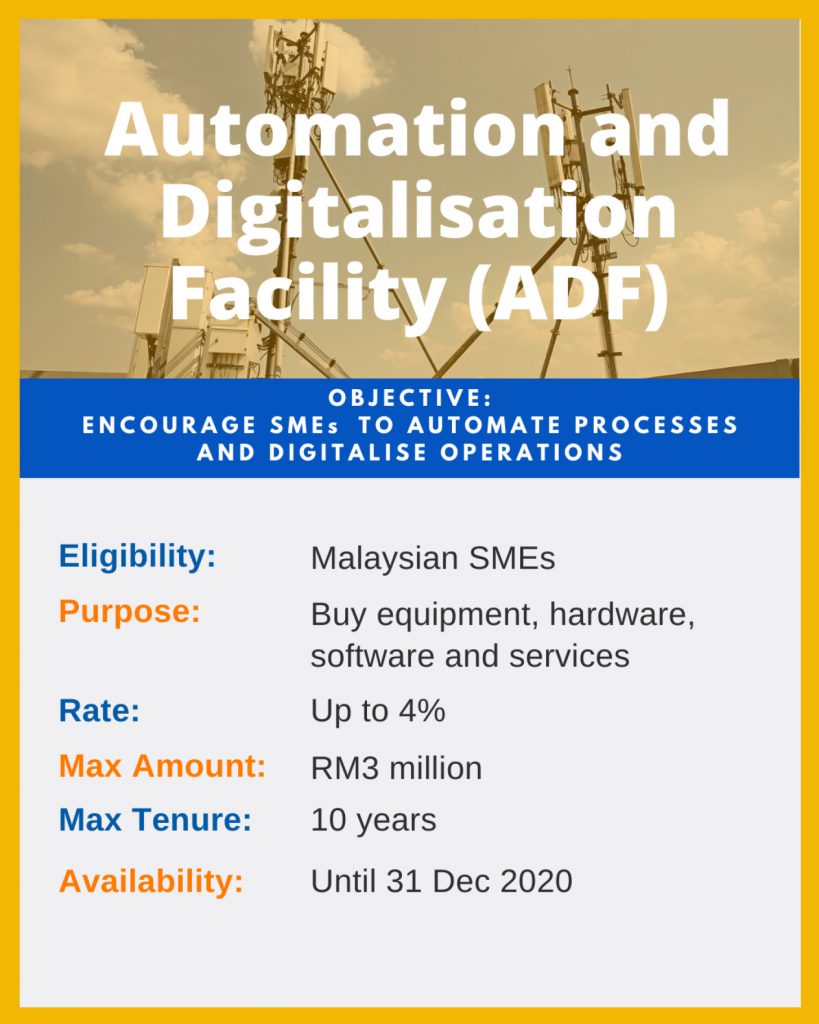
And then there’s the biggest success story – WhitePony. Two of their employees, Michael and Hoong, noted that Livescape’s talent in marketing and design could be used to service SME brands… in Singapore. With the SGD-MYR exchange rate, SMEs there could experience 5-star brand agency services, at SME-friendly prices. It was a hit, and because branding services were retainer-based, it offered LiveScape a crucial monthly source of income.
Michael and Hoong were made directors and owners of White Pony, and that’s when Iqbal started noticing that many of his team were entrepreneurs who just needed some support to create wonderful things.
June 2021 – “We’re now cashflow positive”
Fast forward to today, Livescape is once again cash-flow positive, and the ideas are flowing again as well. Not all of them will pan out, he knows, but after a long and painful year, little positive signs are very welcome.

Over CNY 2021, their new ‘chinese gangster apparel’ brand ScaredWhat, sold out on its limited edition apparel, and their new concept street of microbars, Longhouse has already reached 70% of it’s RM5 million funding target. In August 2020, as soon as they turned the corner, they reinstated all remaining staff salaries to their pre-pandemic levels. When asked about the change from an events company to sort of a digital business incubator, he had this to say.
“I’m really excited for the group la – this is a fresh & bold new chapter. For us, events were all about bringing communities together, creating amazing moments for them, and we are still doing that today, except that it is in various forms – from activations for some of the biggest brands and our own proprietary IPs.” – Iqbal
Also, he recently bought a new car. This time, it’s a humble Kia sedan. “It’s green. I take that as a tribute to the Land Rover I sold last year.”
Not everyone can turn it around, but help is at hand

You might have heard of the four-phase National Recovery Plan (NRP) that was recently announced by the government to ride out our COVID-battered economy. Alongside that, comes the PEMERKASA Plus and PEMULIH packages to provide financial support for affected individuals and businesses.
The aid programs already started, and you already have access to many of these facilities, so we’ve rounded up the some of the most helpful schemes under the PEMERKASA Plus and PEMULIH packages here:
For individuals & families
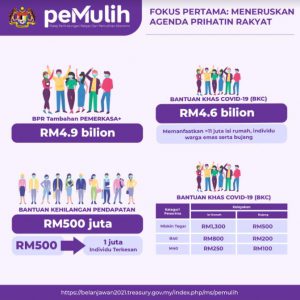
- The Bantuan Prihatin Rakyat (BPR) Tambahan is an additional payment on top of the previous Bantuan Prihatin Rakyat (BPR). How to register? You don’t have to! As long as you’re eligible (check here) for the previous BPR, you’ll be eligible for the BPRT. There’s also the newly introduced Bantuan Khas COVID-19 and Bantuan Kehilangan Pendapatan to supplement the BRPT.
- In dire need of some extra cash? You can now withdraw RM5,000 from your EPF account through i-CITRA (click here to apply from 15 July to 30 September).
- Higher electric bills cause you’re working from home? From July until September, households will get to enjoy discounts up to 40% on their electricity bills based on their usage. SMEs will also be getting a 5% discount.
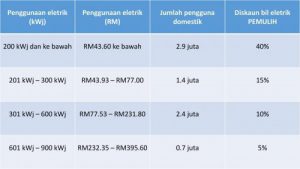
For rakyat with LOANS

- For those struggling to pay off your current loans (we can relate), you guys can opt for a 6 month moratorium by calling your respective banks. We were told that approval is automatic, and there would be no compounding interest or penalty charges for this moratorium.
For businesses
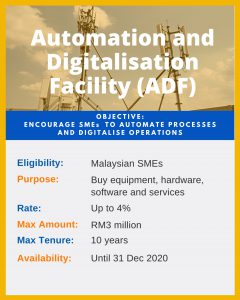
And for those like Iqbal who are looking to turn their businesses around, there’s a whole bunch of stuff to help you out!
- Business owners can apply for the Program Subsidi Upah PEMERKASA+ (PSU+) – the government will subsidize RM600 of the salaries for 500 of your workers (duration varies). Apply here before 31 July!
- Business loans are painful too, so micro enterprises and affected SMEs can also opt for the 6 month moratorium. Give your bank a call to apply. Approval is within 14 working days.
- For micro enterprises, it can be hard to get financing. However, you can get BNM’s micro credit through selected banks such as BSN, Agro bank, MARA (apply through MyUsahawan), SME Corp, TEKUN and YaPEIM.
- The Targeted Relief and Recovery Facility (TRRF) provides assistance to SME entrepreneurs in selected industries to cushion the fall caused by the pandemic. You can get up to 100% working capital for your SME by calling participating financial institutions like SME Bank before 31 December 2021. Click here for a list of participating banks.
- Also, as mentioned in the article, there’s the SME Automation and Digitalisation Facility (ADF), which gets you financing for IT solutions including software and hardware, tech support services, equipment, machinery and more. To be eligible, your SME has to be at least 51% owned by Malaysians. Click here for more info.
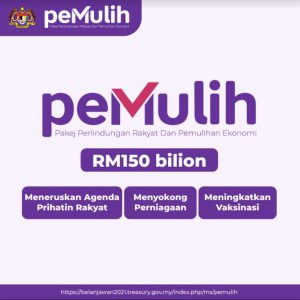
These latest schemes are essentially the sequel to several other assistance programs offered by the government since April 2020. To find out other assistance schemes which might be relevant to you, click here!
- 8.1KShares
- Facebook7.9K
- Twitter29
- LinkedIn23
- Email24
- WhatsApp176

